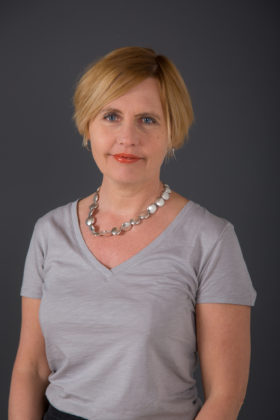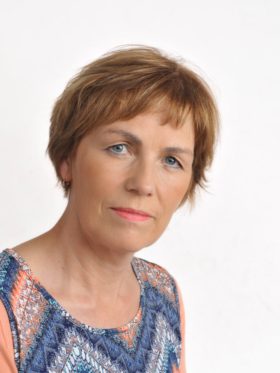A gender quota law is not a quick fix
In Norway and Iceland, gender quota laws have successfully increased the share of women on corporate boards. The issue of introducing a similar law in Sweden has been debated for many years, but so far no legislative changes have been made. However, the very threat of an upcoming gender quota law indeed seems to have made a difference.

Part 1: The labour market
The red-green Swedish government has been threatening to pass a gender quota law since 2014. The intention was for such a law to go into effect this year. However, a few weeks ago, the opposition parties in the government’s Committee on Civil Affairs made an agreement to say no to a gender quota law, which made the cabinet withdraw its plans.
‘The cabinet’s legislative proposal didn’t even make it to the parliament. At this point, a law seems unlikely. It’s a tricky situation for the cabinet, since this means they can be accused for not delivering on the promise they made during the election campaign,’ says Lenita Freidenvall, associate professor of political science at Stockholm University.
It is not the first time the issue of a gender quota law has come up in Sweden. The strategy to put pressure on the business sector by threatening them with a law was implemented already in 1999 by then gender equality minister Margareta Winberg. At that time, companies were told they had five years to increase the share of women on their boards to 25 %. No gender quota law was ever passed, but the threat made a difference. According to Lenita Freidenvall, the share of women on corporate boards increased from 6 % to 18 %.
‘Margareta Winberg’s threat really worked. Considering the multiply threat on introducing a gender quota law it is likely that the present government thought the businesses would solve this on their own,’ she says.
“Sweden is different”

The Norwegian gender quota law was approved by a centre-right government in 2003. Minister of Trade and Industry Ansgar Gabrielsen pushed the development of the law forward, and finally in 2008 it went into effect. Mari Teigen is director of CORE – Centre for Research on Gender Equality and editor of the book Virkningen av kjønnskvotering i norsk næringsliv (the effects of the quota rule in the Norwegian business sector). She thinks it is interesting that the issue has re-surfaced in Sweden.
‘This is an issue that obviously is having a problem making it all the way in Sweden, but that at the same time never completely disappears from the agenda.’
Mari Teigen believes that the differences between the Norwegian and Swedish business sectors can have an impact on the developments in the two countries. In Norway, the state is a central owner of enterprises. This makes it hard to argue against the idea of the state getting involved in the governance of businesses.’
‘Sweden is different, as it more strongly characterised by large private companies like Volvo and Ericsson.’
She also points out another important difference. When Norway passed its gender quota law, the corporate boards had only 6 % women. The present share in Sweden is 32 %.
According to Mari Teigen, the Norwegian gender quota law has had several effects. One is that the corporate boards affected by the law now have about 40 % women. Other benefits are increased transparency and clearer routines for the selection of board members.
‘Instead of appointing board members informally, the businesses use nomination committees. This is an effect not only of the quota law but also of other interventions to improve the processes,’ she says.
The Norwegian law has also helped spark a European debate about the male dominance, both generally in business and industry and more specifically in corporate boards. Several countries have been inspired by the Norwegian model.
‘It has become somewhat of an export,’ says Mari Teigen.
It should be remembered, however, that a lot remains to be done when it comes to gender equality effects of the gender quota law. Studies show that the gender distribution effects have not spread to the top management level in Norwegian business. The fact that the corporate boards have become gender balanced does not mean that these companies are more likely to have a female CEO.
‘So a gender quota law is not a quick fix to solve structural gender equality problems in the business sector. I believe the law would have been more powerful if it had been connected to other gender equality measures,’ says Mari Teigen.
She thinks that issues such as what work experience is required for promotion to higher positions should be addressed.
‘What education is required? Do you have to work 60 hours a week to qualify? There is a need for a more critical discussion of these types of issues,’ she says.
The gool has been achieved

Iceland approved a quota law in 2009. The law went into effect in 2013 and covers all larger companies, with 50 or more employees, as well as all pension fund companies. Evaluations show that the goal of 40 % female board members has been achieved in the companies affected by the law. According to Gudbjörg Linda Rafnsdóttir, professor of sociology, and Thorgerdur Einarsdóttir, professor of gender studies at the University of Iceland, has the gender equality distribution effect of the law not been noticeable in Iceland – but it has led to increased diversity in the boards. They have studied the difference between male and female board members, when it comes to background and characteristics.
‘On average, female board members have more and another type of education than their male colleagues. They are also younger,’ they say.

Gudbjörg Linda Rafnsdóttir and Thorgerdur Einarsdóttir have carried out several studies related to the gender quota law. One review, based on interviews with male and female board members, shows that the women rate the quality of their own board work higher than men in the same positions do.
‘The questions concerned for example whether the board members were prepared for the board meetings and how good they were at taking initiatives or being critical. These results indicate that the claim that women don’t have enough self-confidence for these positions is not true,’ says Gudbjörg Linda Rafnsdóttir.
- Text: NIKK
- Categories: Gender equality and welfare policy
- Published: 2017-01-31

